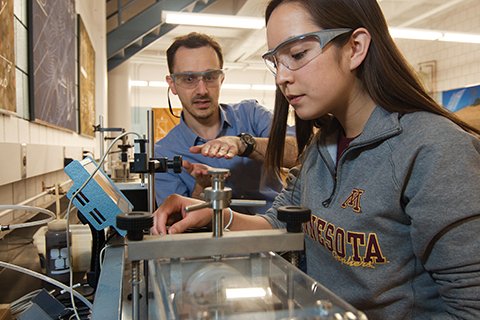Geoengineering
A geoengineer applies the principles of engineering and science to the problems of planning, analysis, design, construction, and operation of facilities on and under the surface of the earth. Aspects of geoengineering appear in infrastructure projects, mining activity, and petroleum production.
For example, a student graduating with a degree in geoengineering may work on underground transportation systems; exploration for resources such as oil and gas; geologic storage of CO2; supply of drinking water from groundwater; isolation of nuclear and other hazardous wastes; land reclamation associated with surface and subsurface mining.
Careers
- Earth resources engineer
- Engineering geologist
- Geoenvironmental engineer
- Geohydrologist
- Geotechnical engineer
- Mining engineer
- Reservoir engineer
- Tunneling engineer
What will I study?
The curriculum includes courses in:
- Geology
- Civil engineering
- Environmental engineering
- Geomechanics
- Numerical methods
- Water resources
You can earn a double major in geoengineering and Earth sciences in four years—eight regular semesters plus two summer sessions of geology eld camp.
The University of Minnesota’s Bachelor of Geoengineering is accredited by the Engineering Accreditation Commission of ABET.

